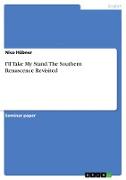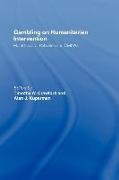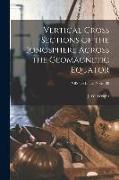I'll Take My Stand. The Southern Renascence Revisited
BücherAngebote / Angebote:
Seminar paper from the year 2013 in the subject American Studies - Literature, grade: 2.0, Martin Luther University (Institut für Anglistik und Amerikanistik), course: "Way Down South": Early Literature of the American South, language: English, abstract: After a brief recession following World War I the United States experienced a technological revolution leading to an economic boom and into an age of consumerism. This "consumer society ... did not respect inherited values or the social status quo" (Parrish x), quite to the distress of some Southern intellectuals who were "opposed to industrialism, and wanting a much simpler economy to live by ("Introduction: A Statement of Principles" xliii). These intellectuals were the Southern Agrarians, a group of twelve writers, all of whom were "well acquainted with one another" (xli), and connected to Vanderbilt University. In their manifesto I'll Take My Stand published in 1930 they argued against industrialism and for a regress to a more conservative life, a life Southerners had lived not that long ago.
Although they published their book at the onset of the Great Depression, the roots of their movement have to be located some years earlier, as the present paper will suggest. After a brief overview of the of the Southern Renascence, the "attempt to come to terms not only with the inherited values of the Southern tradition but also a certain way of perceiving and dealing with the past" (King 7), the beginnings of this literary movement will be analyzed. In this regard, special attention is paid to Henry Louis Mencken, a journalist who, with his outspoken critique of the Southern Way of Life, triggered literary responses from the above-mentioned group.
It will further be argued, that the Southern Agrarians have their origins in the Fugitives, a group of sixteen poets who started meeting in 1915 to discuss their literary work among each other. While four o
Folgt in ca. 10 Arbeitstagen




